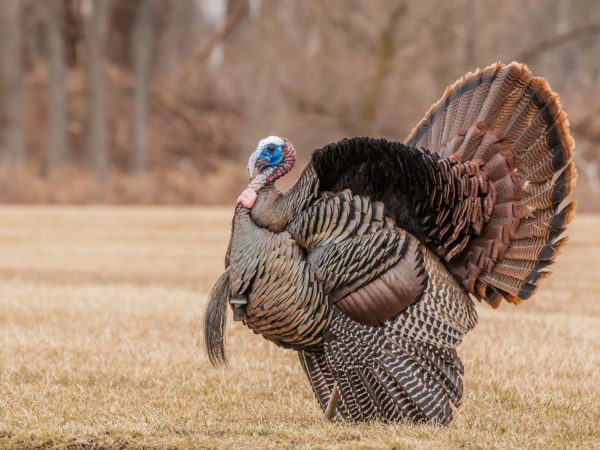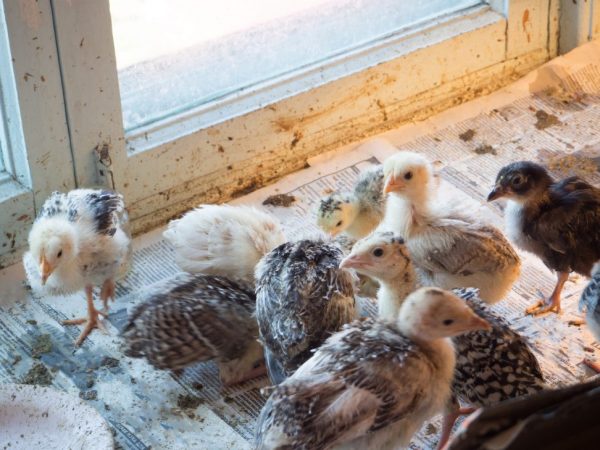How is coccidiosis in turkey poultry treated?
Coccidiosis in chicks is an invasive disease that can affect chicks from the first week of life. With this disease, a simple unicellular parasite called coccidia enters the body of a turkey. The disease can affect not only turkey poults, but also chickens and goslings. Coccidiostatics are used against coccidiosis.

Treatment of coccidiosis in turkey poults
Symptoms
Coccidia enter the body of a turkey with food. Their spread is extremely fast there. Moreover, some animals experience this disease in an acute form. Coccidiosis in turkey poults, symptoms and treatment of the disease require familiarization. Symptoms:
- the animal refuses to eat partially or completely;
- symptoms include the following behavior: chick becomes lethargic, lethargic, and sleepy;
- turkey poults have an increased need for drinking;
- you can also notice coccidiosis by plumage, feathers fall off, ruffle, in appearance the chick also looks unhealthy, you can even see it from the photo;
- for coccidiosis is also characteristic loose stools in turkeysin which blood is present.
This disease of turkeys causes, first of all, harm to the intestines, also the liver. If an adult bird falls ill, then the disease can proceed without obvious symptoms, and the adult bird is much more likely to defeat the disease. In turkeys, it is easier to detect coccidiosis, they suffer from it more and die more often. Half of the young may die because of the disease.
Causes
The reasons why this disease occurs must be sought in the compilation poultry menu and in the conditions of its content. A large number of birds cannot be kept in a small area. It is important to keep an eye on the humidity in the room. Chicks should not overcool or, on the contrary, overheat. It is important to follow sanitary standards.
Animals become infected with coccidiosis through drinkers and feeders, litter that is not maintained in accordance with sanitary standards.
These bacteria thrive best in warm and humid weather. It is very important for the owner to track down the unhealthy birds in time. A clear sign in behavior is that the chicks emit a plaintive squeak.
How to treat?
As you know, the best treatment is prevention. The same can be said here. Coccidiosis in turkey poults is easier to avoid than to treat. An effective preventive measure is a manganese solution, a 3% formalin solution, and slaked lime.
If you notice symptoms in several individuals, then they urgently need to be removed from the rest of the birds. It is also important for healthy turkeys to add a coccidiostatic to their feed. For sick turkey poults, it is best to use monopreparations, rather than complex therapy.

Prevention is the best cure
There are funds that we produce that help fight this ailment, they can also be used in smaller doses for preventive measures:
- Amprolium (for preventive measures, 75 grams are taken, 0.0075 solution) this is per ton of food. You need to issue it in the first week of life.For therapeutic measures, 0.25 grams (0.025 solution) per kilo of feed for weekly turkeys is suitable.
- Koktsidiovitis. For prevention, use 0.145 grams per kilogram of feed, give such feed throughout the week.
You can also use foreign drugs to combat this disease:
- Zoalen (for prophylaxis use 0.125 grams) 0.0125 solution per kilo of feed, give within 2 months. As a treatment, this remedy is used in such a way that it is dissolved in water, which is given as a drink. Zoalen is good because it is offered to turkeys from their birthday.
- Baycox. If treated with it, then dissolve in a ratio of one ml to one kg of water. Turkey poults should be given the entire dose in two days. This is a powerful medicine, from which all types of the parasite die with a guarantee in a small amount of time. At the same time, by its composition, Baycox does not conflict with feed.
- Solicox. It is a coccidiostatic agent of wide application. It has low toxicity, it can treat coccidiosis not only in birds, but also for the treatment of rabbits or cows. Can be used with various feeds.
- Amprolin VP. Great for both prevention and treatment of this disease. The action takes place in 24 hours. After the drug is released together with excrement. Does not go into the blood of the bird. All types of coccidia die from it. It is given with water.
- Diakox. 1 mg per 1 kg of finished feed as a preventive measure. Give turkey poults from the day of birth.
- Monlar 10% granulate. You need to be careful with this drug, because it does not combine with some types of feed. Low toxicity.
- Koksitsan 12% granulate. It is also a fodder coccidiostatic. Take this medication with caution, too, because it is quite toxic. It is important to follow the dosage. It is best used for preventive purposes.
Do coccidiostatics have disadvantages?
Coccidiostatics have not only advantages, but also disadvantages:
- Coccidia, as the simplest parasite, are constantly adapting to the drugs that are used against them.
- Because of them, there may be paresis of the muscles on the legs of turkey poults.
- Even with the strictest adherence to the dosage, the likelihood of drug poisoning remains.
- Bleeding in the gastrointestinal tract of turkey poults is possible.
- The vessels of the duodenum can fill with blood due to drugs.
Vaccination
Vaccination of turkey poults can be an alternative in the fight against coccidiosis. This procedure helps to develop immunity in turkey poults to coccidia.
After this procedure, throughout the year, you can not be afraid that the turkeys will become infected with this disease.
Post-treatment period
When the treatment of coccidiosis in turkey poults has already ended, and the veterinarian told you that the bird is healthy, it is important to understand that for some period of time the turkey poults will still recover. During the illness, the bird's immunity deteriorated. It is advisable then, when you finish the main course of treatment, to take another vitamin course, which normalize the work of the digestive tract and, in general, increase the body's immune forces. Only then will the bird's body function normally. If you are using vaccination, then these methods will not be needed.

